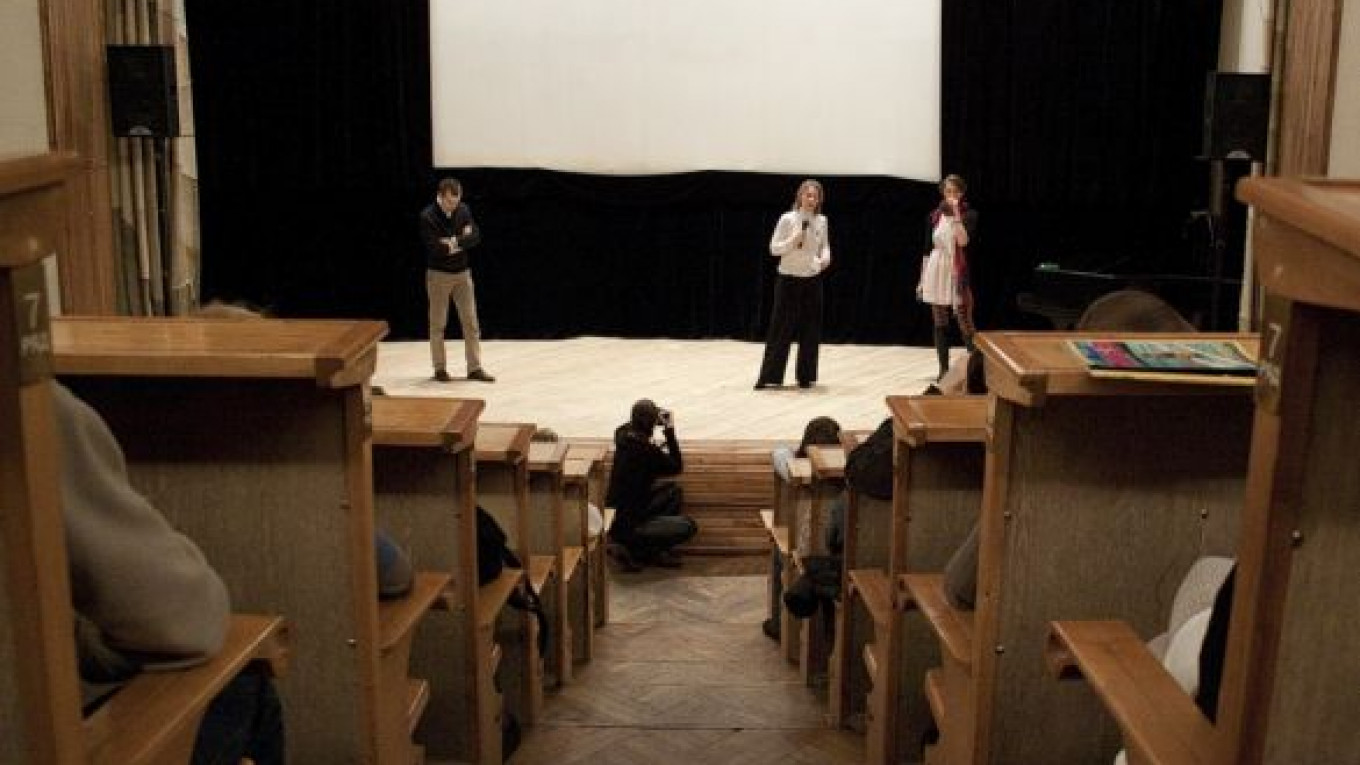The expedition member looks out at the white landscape that he is traveling through and says, "It's a world scraped to the bone. Nothing is redundant here. Apart from us."
"Turf War in a No Man's Land," which follows a Danish scientific mission to the Arctic, was one of the films shown late last month at the EkoChashka, or EcoCup, festival devoted to environmental issues.
"The documentary asks the questions: Should we interfere with the last unspoiled spots on the planet? And should every inch of the planet be divided and owned?" Danish director Suvi Helminen wrote in an e-mail interview. "The story takes place on a Danish-Swedish-Russian expedition to the Arctic Ocean's Lomonosov Ridge, close to the North Pole."
"A Danish expedition sets out aboard a Swedish icebreaker into the ice-covered Arctic Ocean surrounding the North Pole. They are trying to collect data to prove to the UN that the resource-rich underground is an extension of Greenland."
Up to 25 percent of the world's oil and gas resources are trapped beneath the ice in the arctic, and five nations are battling to get borders redrawn in their favor.
Helminen's journey took place in 2009 not long after Russia had planted a titanium flag at the bottom of the Arctic Sea in a flamboyant claim for their stake in the Arctic riches.
The expedition footage is mixed with interviews with Artur Chilingarov, an Arctic explorer and United Russia State Duma deputy, and Tatyana Saksina from the WWF Arctic Program, among others.
"In spite of this conflict of interest, the Danish expedition is dependent on assistance from the Russian nuclear icebreaker '50 Years of Victory,'" Helminen wrote.
The film was shown at the festival along with other foreign films devoted to ecological problems. The films were followed with discussions and seminars on the issues raised that drew large numbers.
"The film is about who should control the treasures of the Arctic and how not one of the countries claiming [the treasures] can get the data for the United Nations on their own and only working together," said Marina Yuzhanova, who attended the festival.
Although the festival went well and films were well received, organizers admitted that the green movement has far to go in Russia.
"We want to change the mentality of Russian people," said curator Natalya Laukkanen, "to create a desire to separate garbage."
Her biggest impression from the festival was "the discussion which lasted for two hours and then went on in the corridors and hall" of the Polytechnical museum, where they took place.
Part of the festival included making green housekeeping goods, where visitors were shown how to make their own ecologically friendly cream and deodorant.
A Message from The Moscow Times:
Dear readers,
We are facing unprecedented challenges. Russia's Prosecutor General's Office has designated The Moscow Times as an "undesirable" organization, criminalizing our work and putting our staff at risk of prosecution. This follows our earlier unjust labeling as a "foreign agent."
These actions are direct attempts to silence independent journalism in Russia. The authorities claim our work "discredits the decisions of the Russian leadership." We see things differently: we strive to provide accurate, unbiased reporting on Russia.
We, the journalists of The Moscow Times, refuse to be silenced. But to continue our work, we need your help.
Your support, no matter how small, makes a world of difference. If you can, please support us monthly starting from just $2. It's quick to set up, and every contribution makes a significant impact.
By supporting The Moscow Times, you're defending open, independent journalism in the face of repression. Thank you for standing with us.
Remind me later.






